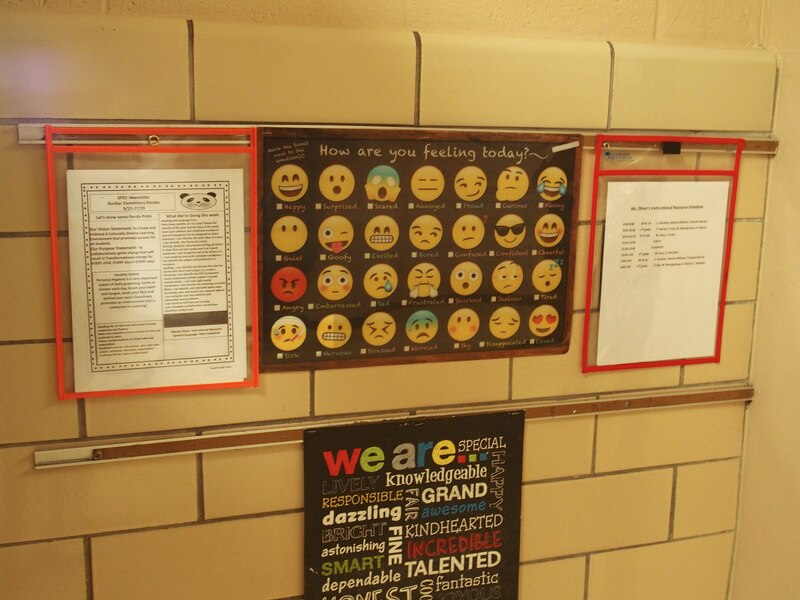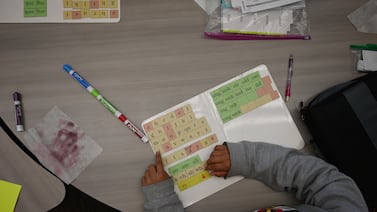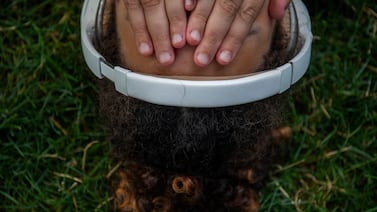Shelby County Schools students will be attending school remotely from home this fall, but the basic rules of school will still apply, with penalties for tardiness, truancy, and dress code violations that could include the online equivalent of in-school suspensions.
The guidelines are laid out in a 25-page revised code of conduct developed by the district to address the shift to online learning. School board members say the document will help reaffirm expectations for appropriate student behavior when formal instruction resumes after months of disruption and summer break.
But the rules also raise concerns that strict disciplinary measures could fall heavily on students who are already struggling to cope with family and other stresses brought on by the coronavirus pandemic.
Student discipline, especially penalties that exclude students from the classroom, was already controversial before virtual learning. In Shelby County Schools, as with many districts nationwide, disciplinary actions fall disproportionately on students of color and students with disabilities.
Meanwhile, Black, Hispanic, and poor students have been more severely affected by the coronavirus pandemic, including family member deaths and hospitalizations, job loss, and eviction.
Cami Anderson, CEO of the national Discipline Revolution Project, said the kind of “massive collective trauma” adults and children are experiencing from the pandemic can cause students to be more on edge and to more easily lose focus. Anderson warned against punishing any resulting rule violations or misbehavior with strict measures such as suspensions.
“Even before COVID, our point of view is if kids are not meeting expectations for whatever reason, excluding them from learning is the least effective way to help them overcome what they’re facing,” she said. “This moment is no different, but it’s even more imperative.”
Some districts have taken what Anderson called extreme measures, including locking a student out of a virtual class if they are late and requiring uniforms.
Under the new Memphis guidelines, suspensions could be triggered by a range of infractions such as “habitual” tardiness or skipping classes, dress code violations, threatening staff or other students, or inappropriate use of their digital devices.
Suspensions during virtual learning would involve assignments from teachers in a separate video conference with an adult, and can last from one to 10 days.
In recent years, the district has tried to prevent student misbehavior from escalating by hiring specialists to talk through situations with students and get to the root of the problem.

The district also started “reset rooms” last year to provide space for students to debrief with an adult and calm down. In conflict situations, staff members focus on developing strategies to restore the relationship between the student and teacher or another student. In schools that had reset rooms, the number of students suspended declined to 15% of the student population from 19% the previous year..
Reset rooms are slated to continue during online learning, according to the document, though it’s not clear how they would be arranged. District staff did not comment for this story.
School board member Althea Greene, a retired teacher, said communicating online behavior expectations to students will be key — especially after nearly six months of no classroom instruction.
“Some of them are going to test teachers, because they’re not in the classroom and they think ‘They can’t get me,’” she said. “I think once students understand expectations, they will rise to them — if we communicate them. And then they’ll be fine.”
The district has already set dress code requirements for students as teachers provide live lessons over video. Students who normally would wear uniforms at school won’t have to, but pajamas, hats, and hoods aren’t allowed, and shirts must have sleeves.
Other expectations include that work stations must be cleared of things the student isn’t using for class, including cell phones. Eating and drinking are not allowed during class to prevent damage to laptops or tablets and to limit distractions, according to the protocols.
You can read the district’s expectations for students below:







